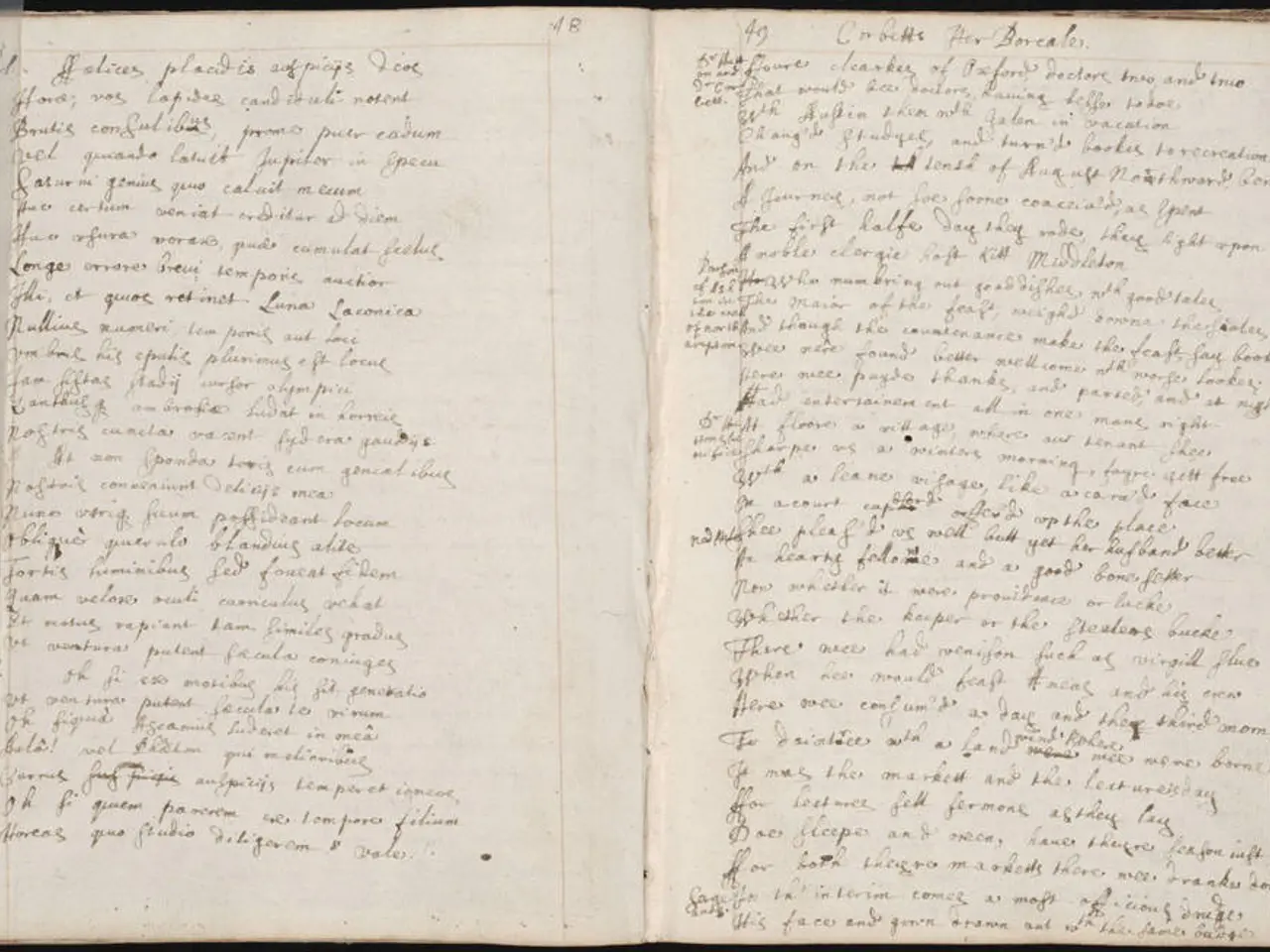Censorship of Books: Its Impact on Muzzling the Voices of Marginalized Communities
In recent times, a significant resurgence of book bans in schools and libraries across the United States has raised concerns about the suppression of diverse voices and the promotion of systemic oppression. This trend, which disproportionately affects stories and perspectives of marginalized groups, is not a new phenomenon but a continuation of historical efforts to control cultural narratives and knowledge.
One of the latest targets of book bans is "The Hate U Give," a novel that delves into the journey of a young, Black girl after her friend is shot by a police officer. The book, while not explicitly teaching critical race theory, presents a realistic portrayal of police brutality and systemic racism through its narrative. Contrary to misconceptions, the novel does not advocate for "anti-police" ideals; instead, it portrays a police officer, Uncle Carlos, as one of the most lovable characters in the book.
The ban on diverse literature such as "The Hate U Give" places students at a personal and academic disadvantage, leaving them with a partial view of the world. Ms. Sophia Sapozhnikov, an English teacher, emphasizes the importance of hearing a diverse range of perspectives in a humanities-oriented classroom, stating that exposure to different people's experiences and literature is essential for broadening one's worldview.
The criticisms directed towards the novel are often ill-researched. For instance, the concerns about profanity in the book are misplaced, as the swear words are used in relative moderation and add to the weight of the story.
The distorted justifications behind the banning of the novel are an example of policymakers fabricating lies to prevent their beliefs from being challenged. This dynamic illustrates that book bans are not merely about "protecting" readers but about controlling who gets to tell their stories and whose experiences are validated in society and education.
Historically, book bans have been used to suppress religious and political texts, works deemed "obscene" or "un-American," reflecting ongoing struggles over who controls cultural narratives and knowledge. In contemporary times, these bans disproportionately affect stories and perspectives of marginalized groups, effectively erasing the experiences of people of color and LGBTQ+ individuals and limiting students' intellectual growth and critical thinking.
The banning of books related to racial issues often connects to broader political opposition to concepts like critical race theory (CRT). CRT has been targeted by some political leaders who accuse it of promoting divisive or anti-American ideas, leading to laws that restrict teaching about systemic racism, white privilege, and the lived realities of people of color. Such bans mask efforts to avoid confronting the structural nature of racial oppression, thus reinforcing systemic inequality by curtailing honest education about race.
Likewise, LGBTQ+ themes in books are frequently censored under the guise of "religious freedom," but these censorship efforts serve to exclude LGBTQ+ voices and narratives from public education, fostering a hostile and exclusionary environment for LGBTQ+ youth. This strategy weaponizes religion to suppress diversity rather than protect pluralism.
These censorship efforts are part of a broader pattern of political attempts to control national memory and shape cultural narratives, whether in education, public libraries, or even national parks' historical interpretations. The effect is a sanitized, incomplete recounting of history that marginalizes or erases the voices of oppressed communities and obstructs democratic engagement with America's diverse social realities.
In summary, book bans historically and presently serve to silence marginalized racial and LGBTQ+ voices, restricting access to knowledge that challenges dominant power structures. Such censorship reinforces systemic oppression by shaping education to exclude critical perspectives on race, sexuality, and identity. These bans threaten not only intellectual freedom but also the democratic values of inclusion, diversity, and critical engagement with history.
- The editorial section of the news outlet might address the ongoing issue of book bans, particularly focusing on the recent ban of "The Hate U Give," and discuss the implications for students' intellectual growth and the promotion of diversity in literature.
- A historical analysis of book bans could delve into instances where literature with political and religious content has been suppressed, as well as the current trends that disproportionately affect marginalized groups, such as stories and perspectives of people of color and LGBTQ+ individuals.
- A lifestyle segment might feature interviews with educators who advocate for the inclusion of diverse perspectives in their classrooms, highlighting the importance of stories like "The Hate U Give" in preparing students for a multicultural society.






